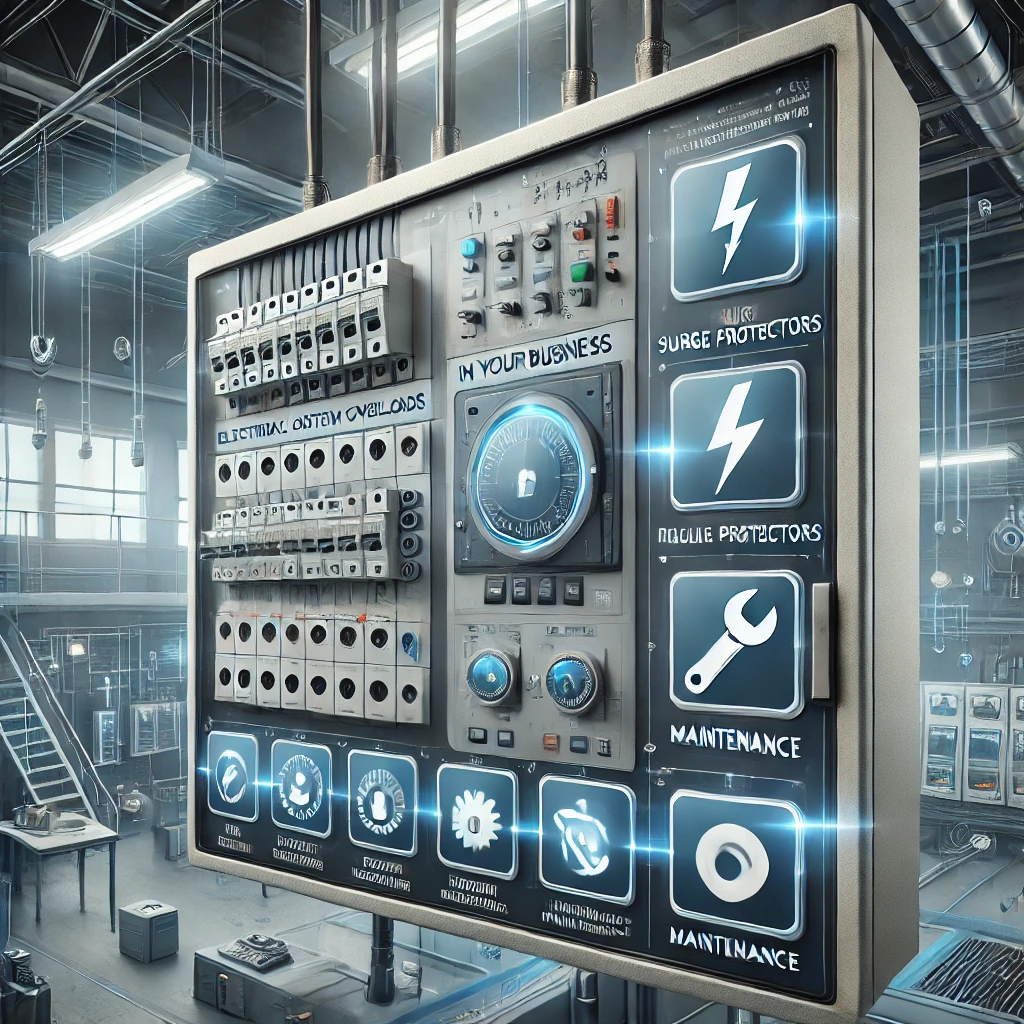Managing Electrical System Overloads in Your Business

Electrical system overloads can pose significant risks to businesses, including equipment damage, fire hazards, and operational downtime. Properly managing and preventing electrical overloads is crucial for maintaining a safe and efficient work environment. This blog post provides practical tips for managing electrical system overloads in your business.
Tips for Managing Electrical System Overloads
1. Understand Your Electrical Load
Importance
Knowing your electrical load helps you identify if your system is at risk of overloading.
Steps
- Calculate Total Load: Sum up the power requirements of all your equipment and devices.
- Compare to Capacity: Ensure the total load does not exceed your system's capacity.
2. Upgrade Your Electrical System
Importance
An outdated electrical system may not handle the demands of modern business operations.
Steps
- Hire a Professional: Consult an electrician to assess and upgrade your electrical system.
- Increase Capacity: Consider upgrading your electrical panel and wiring to accommodate higher loads.
3. Distribute Electrical Load Evenly
Importance
Even distribution of electrical load prevents localized overloads and potential hazards.
Steps
- Use Multiple Circuits: Spread out high-power equipment across different circuits.
- Avoid Extension Cords: Limit the use of extension cords and multi-plug adapters.
4. Regular Maintenance and Inspections
Importance
Regular maintenance ensures your electrical system remains in good condition and prevents overloads.
Steps
- Schedule Inspections: Have a licensed electrician perform regular inspections.
- Replace Damaged Components: Promptly replace any damaged or worn-out components.

5. Install Overload Protection Devices
Importance
Protection devices automatically shut off power when an overload is detected, preventing damage and hazards.
Steps
- Circuit Breakers: Ensure your electrical system has properly rated circuit breakers.
- Surge Protectors: Use surge protectors for sensitive equipment.
6. Educate Employees
Importance
Employee awareness can prevent practices that may lead to electrical overloads.
Steps
- Training Sessions: Conduct training on safe electrical practices.
- Usage Guidelines: Provide guidelines on proper use of electrical equipment.
7. Monitor Electrical Usage
Importance
Monitoring helps you identify patterns and potential issues before they lead to overloads.
Steps
- Energy Management Systems: Implement energy management systems to monitor and control electrical usage.
- Regular Audits: Perform regular audits to check for any unusual patterns or spikes in usage.
Conclusion
Managing electrical system overloads is essential for the safety and efficiency of your business operations. By understanding your electrical load, upgrading your system, distributing the load evenly, performing regular maintenance, installing protection devices, educating employees, and monitoring usage, you can prevent overloads and ensure a reliable electrical system. Implement these tips to maintain a safe and efficient workplace.
Category:



